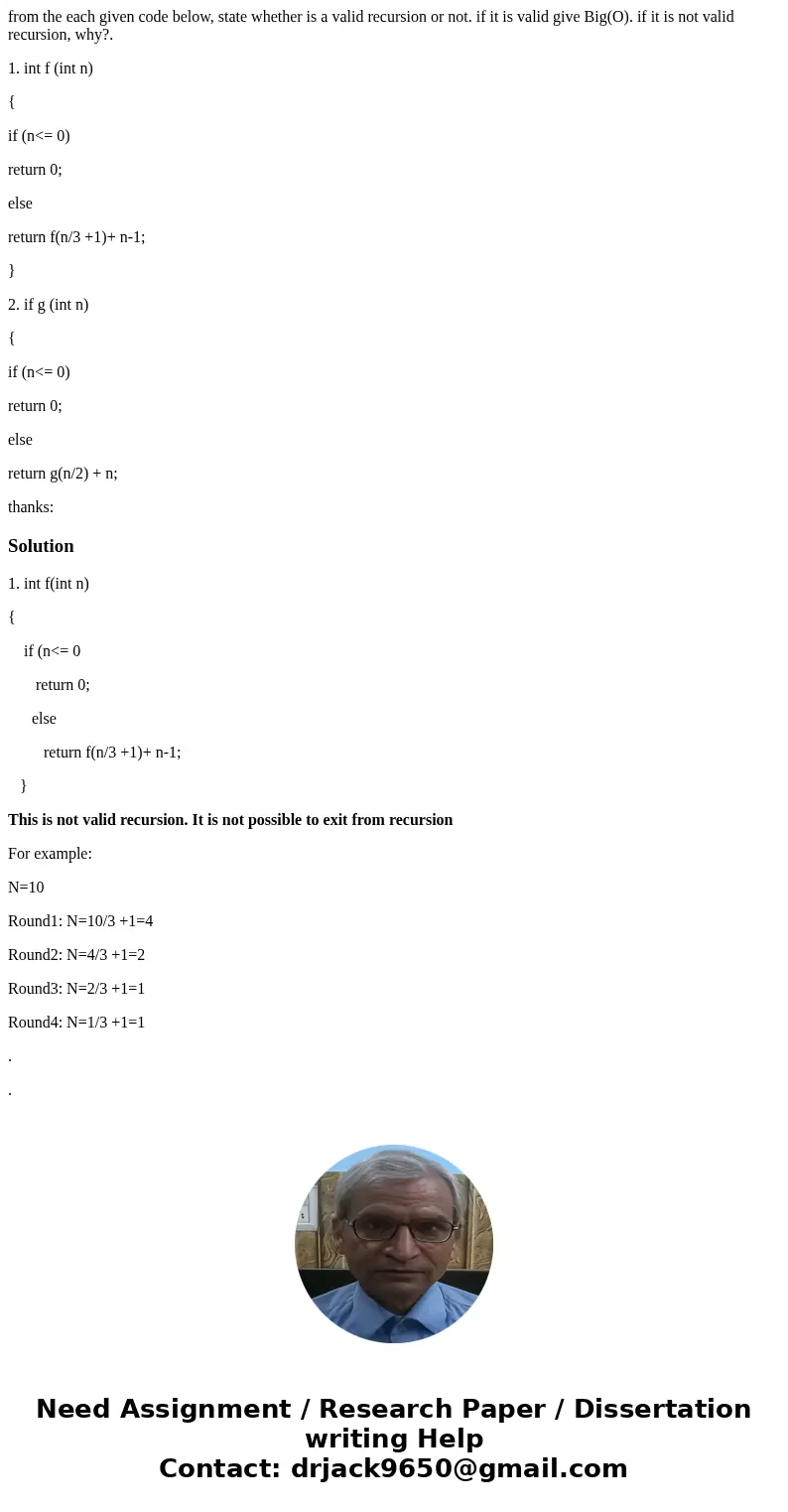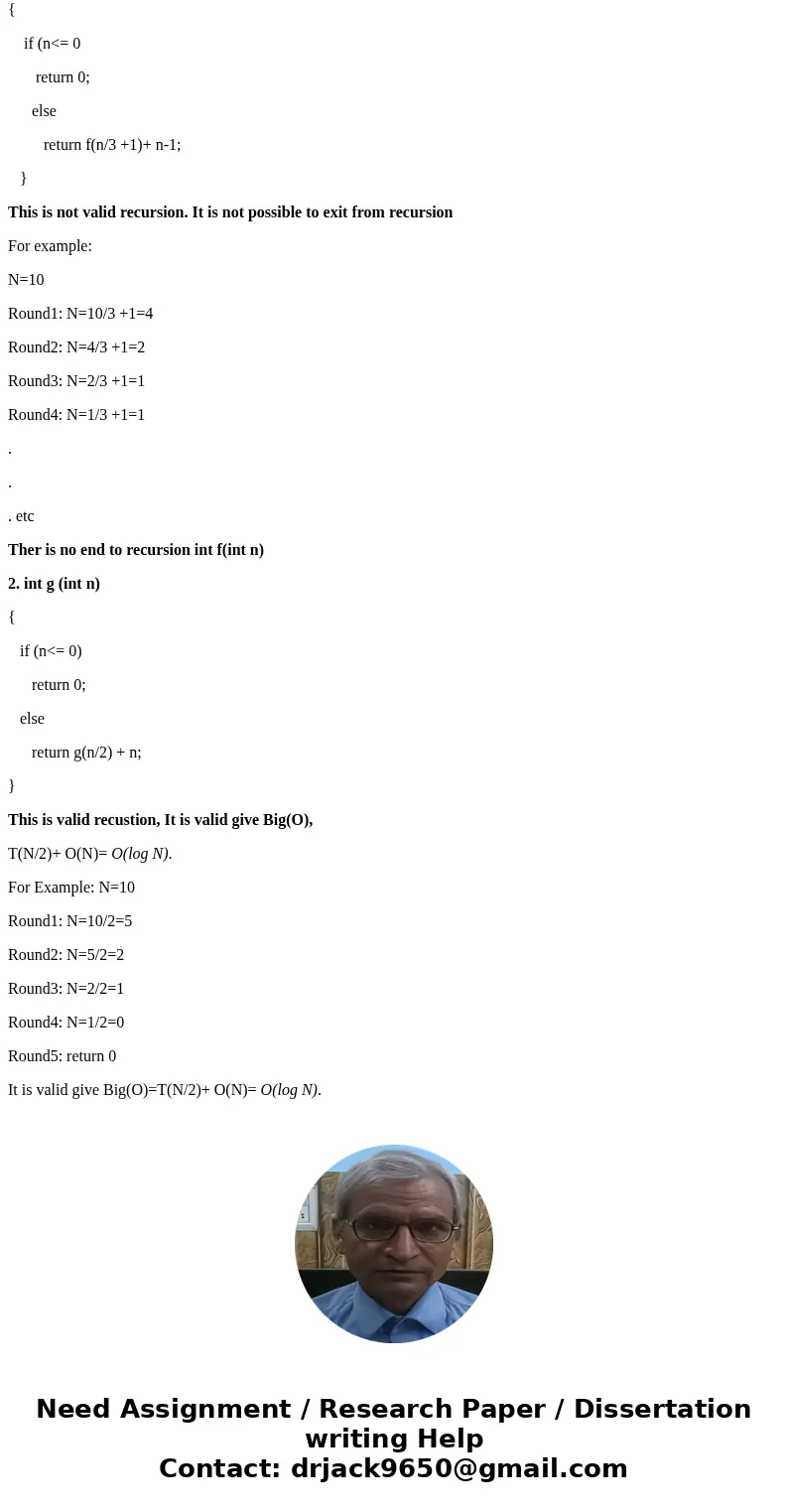from the each given code below state whether is a valid recu
from the each given code below, state whether is a valid recursion or not. if it is valid give Big(O). if it is not valid recursion, why?.
1. int f (int n)
{
if (n<= 0)
return 0;
else
return f(n/3 +1)+ n-1;
}
2. if g (int n)
{
if (n<= 0)
return 0;
else
return g(n/2) + n;
thanks:
Solution
1. int f(int n)
{
if (n<= 0
return 0;
else
return f(n/3 +1)+ n-1;
}
This is not valid recursion. It is not possible to exit from recursion
For example:
N=10
Round1: N=10/3 +1=4
Round2: N=4/3 +1=2
Round3: N=2/3 +1=1
Round4: N=1/3 +1=1
.
.
. etc
Ther is no end to recursion int f(int n)
2. int g (int n)
{
if (n<= 0)
return 0;
else
return g(n/2) + n;
}
This is valid recustion, It is valid give Big(O),
T(N/2)+ O(N)= O(log N).
For Example: N=10
Round1: N=10/2=5
Round2: N=5/2=2
Round3: N=2/2=1
Round4: N=1/2=0
Round5: return 0
It is valid give Big(O)=T(N/2)+ O(N)= O(log N).


 Homework Sourse
Homework Sourse